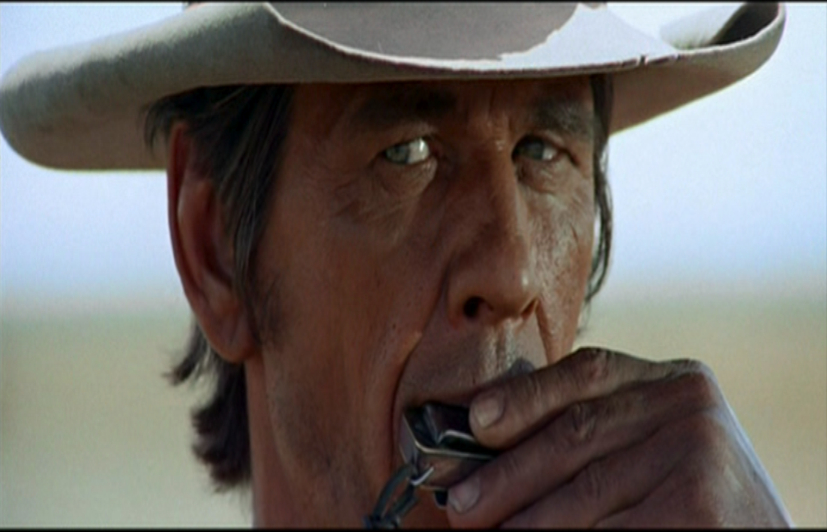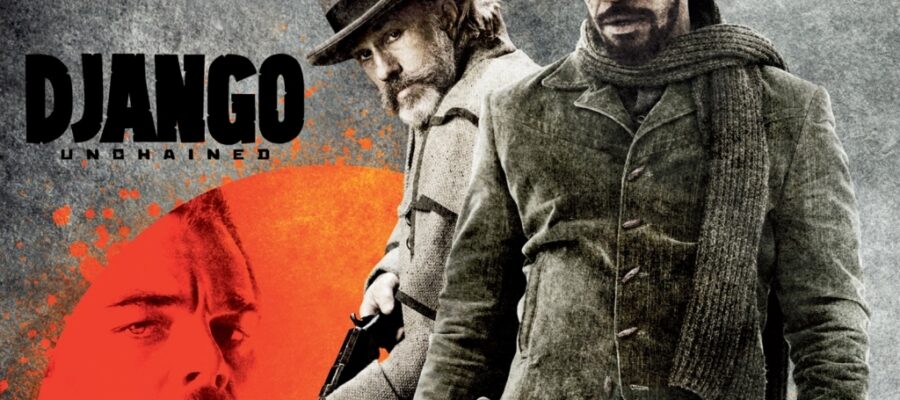For as much the film industry likes to congratulate itself on its artistic integrity, it really is an industry governed by trend chasing – one successful film will come out and then soon after a legion of imitators are released until finally the audience grows tired of the trend, opening the door for something new, and thus the trend restarting. Horror films are the best way to see this phenomenon – think of the slasher films that came out during the early 1980s in the wake of Halloween and Friday the 13th or the pop culture infused ones that came out after Scream. After The Ring came out, it felt that almost every Japanese ghost film was getting an Americanized version and, of course, Saw helped spawn a legion of gore films. But, if horror is the best way to see how the film industry follows trends, then the Western is the one exception to this rule.
What I mean here is that since the early 1980s, though there have been successful Westerns both critically and commercially, the general feeling is that it’s a fluke that cannot be repeated. The reason for this has become something of legend. Back in 1980s, and straight off the success of The Deer Hunter, Michael Cimino made Heaven’s Gate, a Western set in Wyoming and loosely based on the Wyoming Range War. The film flopped and flopped hard – in a single instance Cimino’s career was destroyed, United Artists was bankrupted, and the Western was considered box office poison. Now, the film itself is actually great. I don’t mean that it’s not as bad as it was made out to be, or that it is a good film, but is really is a great one and I will defend it to the end. Regardless, after Heaven’s Gate the Western died, not in the sense that there were no more Westerns made, but that just because one was a big hit, it did not mean more would follow. For all the success that Pale Rider and Unforgiven had, neither of them spawned the sort of imitators that they might have had if they been released before 1980.
I actually knew Django Unchained was being made years before it actually came out. I like Spaghetti Westerns. I like Tarantino. So really, it felt like something I would love. At the very least, it would mean there would be some more attention given to Spaghetti Westerns and even some gems of the genre that had fallen through the cracks would find a new audience after Tarantino “paid them homage.” When I found out it was going to be set in the Old South, I was even more excited. Remember, up until this point, Tarantino was a pretty apolitical filmmaker, so I wasn’t expecting a lot of Dixie bashing (and besides, several Spaghetti Western directors were open Marxists).
I missed the first run of the genre, but this felt like the next best thing. And honestly, Django Unchained is a good film. Its well written and acted, and Tarantino does a great job recapturing the feel of the Spaghetti Western in its heyday. Still, I like it rather than love it, and it does fall in the bottom half of Tarantino films. Far from being the fairly apolitical film à la Sergio Leone, I got a blatantly leftwing and anti-Dixian film, something closer to the “other Sergio,” the second-best Spaghetti Western director and Marxist Sergio Corbucci, the director of the original Django. The politics were far less interesting with Corbucci’s anger being replaced with something that would be more palatable to the NPCs.
Still, the film was a massive hit and incredibly influential. In a way, I would argue it’s the most influential film Tarantino ever made, at least from a certain point of view – not in that it broke the Heaven’s Gate curse on Westerns, the only Westerns that get made anymore are passion projects by established filmmakers and I don’t think anything is going to change that. No, where Django Unchained’s true influence lies is not that it is a Western, but in that it is radically anti-Southern. For decade, the Left has known one simple truth – virtually all the resistance to what they want to do comes from Dixie, so to reform the nation, they must break her.
What Django Unchained showed is that there was an audience that would cheer on Dixian whites being murdered, and this included white people. Sure, Abraham Lincoln, Vampire Hunter had come out a few years earlier, but that was a minor hit and a silly horror-comedy. More importantly, the central character was someone who Americans have been trained to love. Django Unchained broke from that by showing interracial violence. White people would cheer watching a black buy kill Southern whites. It was at point that the Left began to get a lot bolder on its attacks on Dixie. They were now just waiting for the right moment to pounce, and pounce they did when a maniac loser with a bad haircut decided to shoot up a church in Charleston, South Carolina.
I often speak of the 4th Reconstruction beginning in the wake of that faithful day in 2015, as that is when things got really bad, including for me personally. However, and truth be told, the Left was at that moment already gaining ground, especially compared to how battles over the Confederate flag and Dixie more in general would go in the 1990s. They had the momentum, the only question was how long it would take them to fully break Dixie. That they were given the greatest gift imaginable is beyond question, but we cannot overlook that by 2015, they knew they were one gift away from being able to finally accomplish their goals. The success of Django Unchained is a major milestone in helping them realize that.
The history of the 4th Reconstruction is being written right now, and we, as Dixian Nationalists, are part of it. If the 4th Reconstruction ends with us establishing home rule as we did in the 1st Reconstruction, or even full independence, or with us being broken and becoming Boston with better weather and food remains to be seen. No matter how it ends though, one thing is clear, Django Unchained was, as odd as it sounds and how little I was expecting it at the time, a major part in that story and to my mind will be a part of the story of the 4th Reconstruction to future historians.
The film revealed what audiences would cheer for, the only thing left to do was find a pretext and find one they did.







I stopped at “I like Tarantino”. In every single one of his “films” he goes out of his way to insult Southerners, in every single one. Do not watch or support him, he is trash. Even objectively he is trash, his is entire “style” is ripping off old styles and then imitating them very poorly. He hates the South and Southerners, he is our enemy and only has a career because of his willingness to prostitute himself to others that hate and try and destroy us. Stop supporting people who hate you. He is a hack.
Django Unchained came out in 2012. Inglorious Basterds came out in 2009. Both films have the same basic plot, with the desired result of the audience cheering for the cruel, violent demise of the good guys.
@Johnny Redux, the Nazis were NOT the “good guys”. It’s because of them that millions of Europeans killed each other. Hitler persecuted and killed Christians. He was not a good guy. Per the old South cruel Slave masters were not good guys either. A case can be made for benevolent, kind, Christian slave masters.
Agreed. Hans Landa and Calvin Candie were over-the-top cartoonish villains. While interesting film characters, they are not “good guys.” Candie even had dogs rip a man apart and Landa killed children.
Just a short hop from Django to the Nat Turner movie…
It’s been clear to me for the last 30 years that Hollywood has been preaching and pushing the demise of our culture. It’s a wonder to me why Southerners, of all people, can’t seem to see this. Up here in the northwest I see the entire culture is semi-literate, dependent on Hollywood and perhaps NYC publishers to inform them. Results are visible in the changes in Seattle, Tacoma, Portland over the last 30 years too. Get behind me, Hollywood devils!
In the real Spaghetti Westerns, the protagonists were usually ex-Confederates, or at best, without any connections to the North/Northeast. Yankees, when they weren’t the villains, and didn’t even appear in the film, were at least mentioned with scorn and contempt, if at all.
I think that that Italians had a better understanding of the South and the Southwest, than do most American Northerners. The fact that they had no sympathy at all, for Yankees, or for the Northern States, made their films all the better, and more convincing. They never bought the; “America is the North, the North is America,” trope.
They never made any films set outside of far Southwest Texas, New Mexico, Arizona, or the border country of Northern Mexico, either. Which is where the gunslinger action, range wars, Indian fights, really took place. Westerns set north of Kansas are few in number, not really convincing, and mostly boring.
It’d be more accurate to call these films “Southwesterns.”
Tarantino’s Django films aren’t even remotely Spaghetti Westerns. Ironically, the activities of the “heroes” in the film, are largely what drove secession among the common folk of Dixie, in real life. Read about it here; https://www.tshaonline.org/handbook/entries/texas-troubles.
Good Westerns are always sympathetic to Dixie, and always contemptuous of, and defiant towards, the North/Northeast.